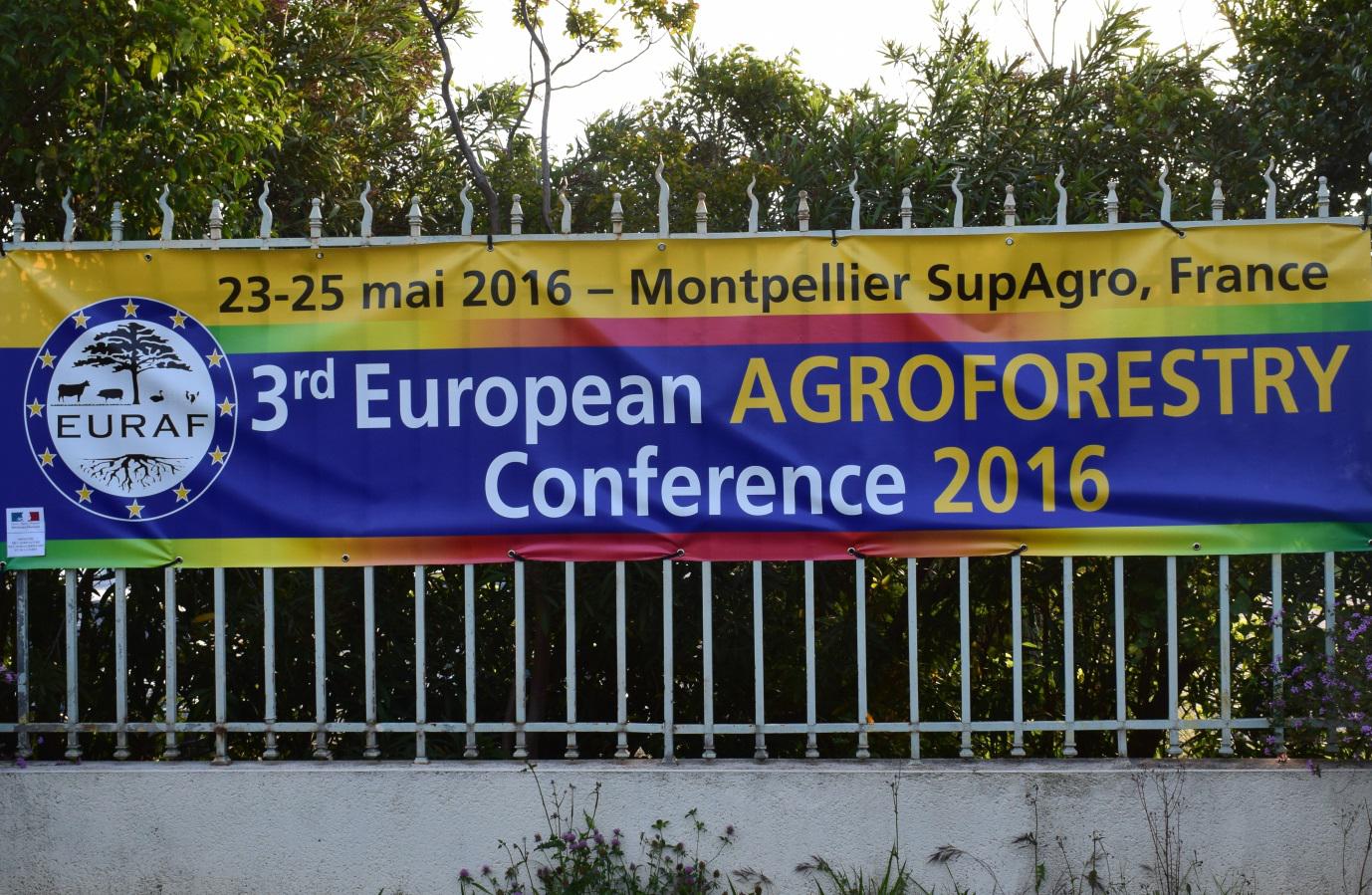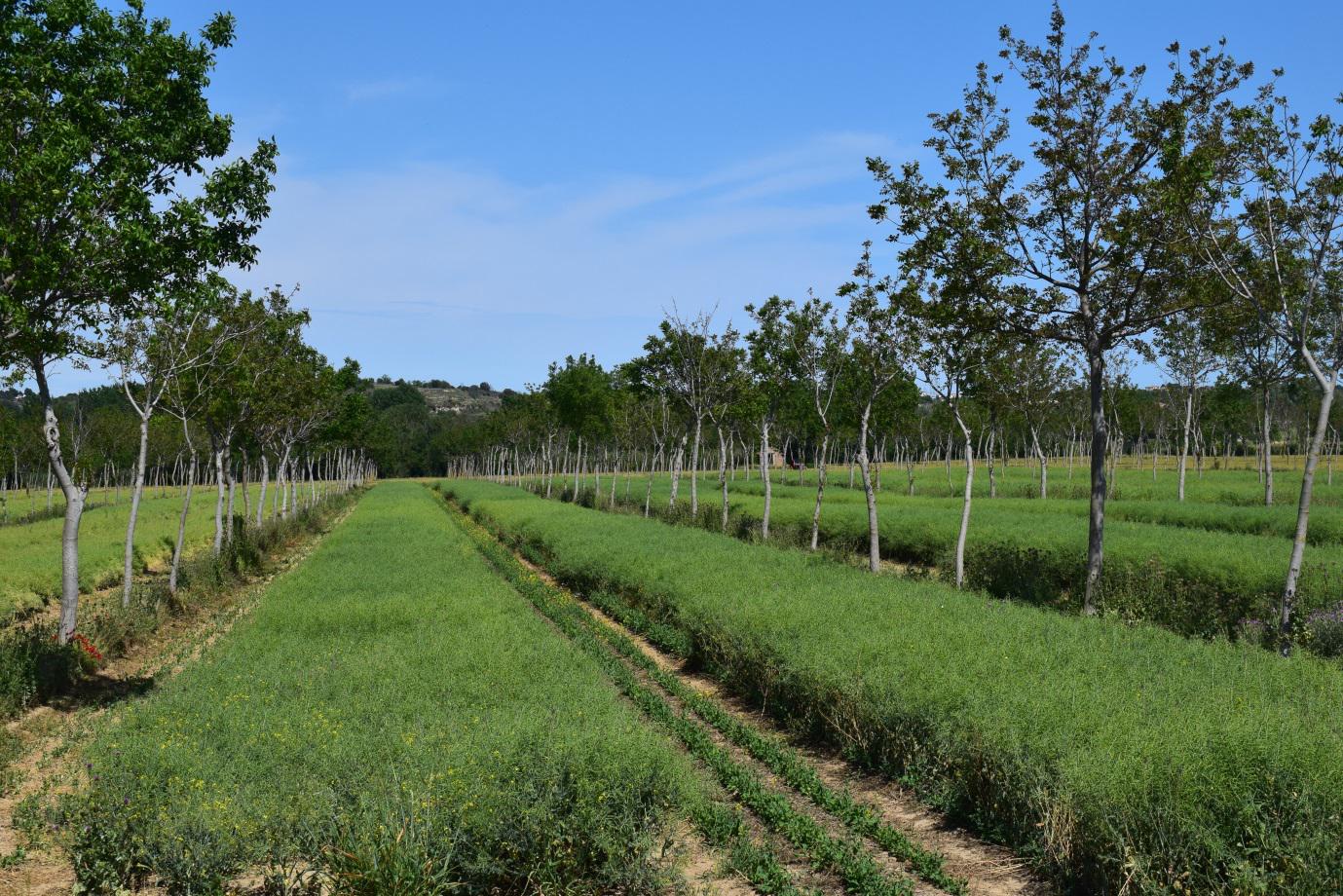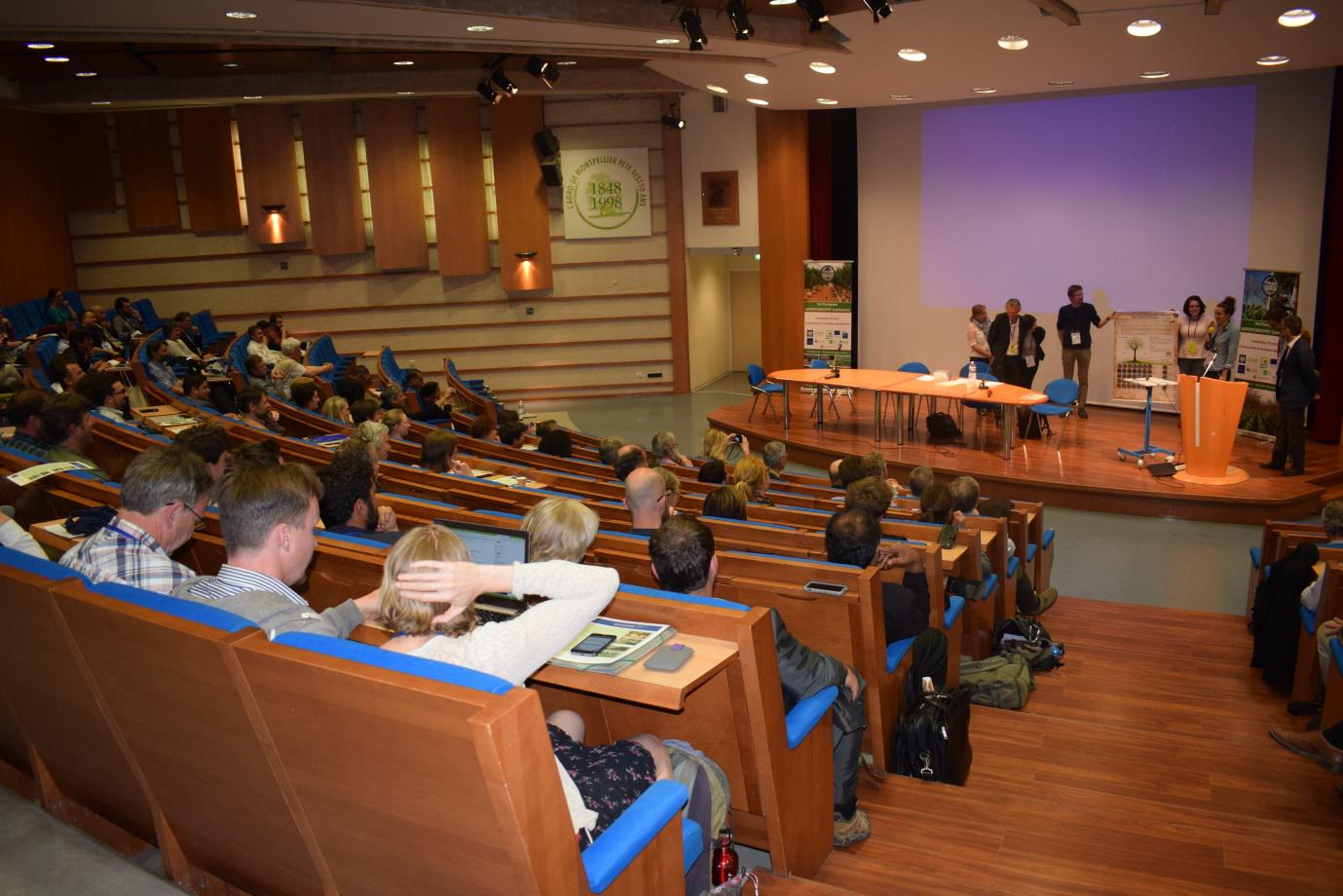23-25 May 2016
Third European Agroforestry Conference

Members of AGFORWARD played a leading role in the successful Third European Agroforestry Conference held between 23 and 25 May 2016 at Montpellier SupAgro in France. The conference organised by the European Agroforestry Federation (EURAF) was hosted by Dr Christian Dupraz (INRA) and the Book of Abstracts was edited by Dr Marie Gosme (INRA). The speakers on the first day included Stéphane Le Foll (French Minister of Agriculture), Emmanuel Petel and Gaétan Dubois (European Commission), Rosa Mosquera Losada (President of EURAF), and Alain Canet (President of the French Agroforestry Association (AFAF)). Talks were also provided by Andy Gordon and Mike Jacobsen on the state of agroforestry in North America, and by Mark Shepard on restoration agriculture.
The conference theme was “celebrating 20 years of agroforestry research in Europe”, and although agroforestry research in some parts of Europe may be older, the conference was taking place 20 years after the “Agroforestry for Sustainable Land-Use” workshop that took place in Montpellier in June 1997. There were 287 registered delegates from 26 countries including China, the USA, and Canada, and a wide range of backgrounds. The themes for the four parallel afternoon sessions on the first day were: development of agroforestry in Europe, environmental benefits, innovations, and productivity and economic performance.
The second day included an option of one of three trips to see agroforestry in the field. The first option included a visit to Restinclières to see the silvoarable system with walnut trees and cereals including the positive impact on soil carbon and soil biology. The visit also included a vineyard agroforestry system and experimental plots with stone pine and Sorbus species. The second option was to see vegetable gardening agroforestry and the silvopastoral systems at Vézénobres. Field tour three covered the greatest distance, it included the management and use of box (Buxus sempervirens) on a pig and sheep-farm, the alley cropping of cereals and oilseed rape between walnut, and the intercropping of olive trees. Each of the three groups finished the day at Restinclières.

Integrating walnut production with the production of oilseed rape seed.
The final days included four parallel morning sessions focused on farmer testimonies, agroforestry and climate change, agroforestry products, and tree-crop interactions. The final afternoon session focused on agroforestry performance, agroforestry modelling, silvopastoralism, and agroforestry policy. A panel discussion focused on the farmers practicing agroforestry highlighted that farmers were often looking for system-based solutions to improve the profitability and sustainability of their businesses. For many, agroforestry offered an alternative way to make better use of their own on-farm resources rather than focusing first on purchased inputs.
The meeting concluded with prizes for the best posters and an end of conference inspirational talk by Patrick Worms (from ICRAF). Overall there was a very positive and inspiring atmosphere to the conference and there was good attendance by farmers across Europe, many of whom were supported by national agroforestry associations. Whilst researchers may often focus on the tree, livestock or crop components of agroforestry, the really key “component” of successful agroforestry in the field are individuals who are willing to innovate.
